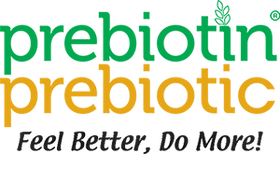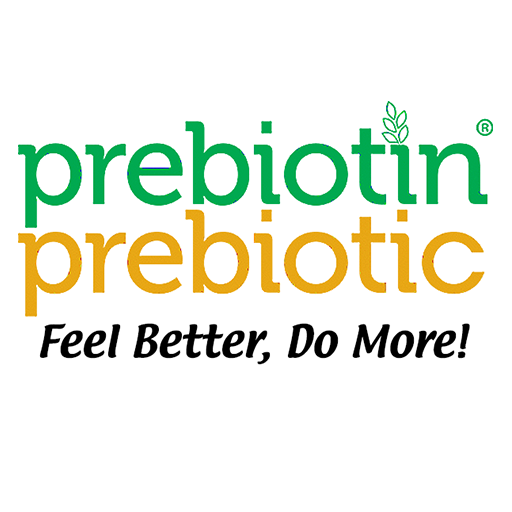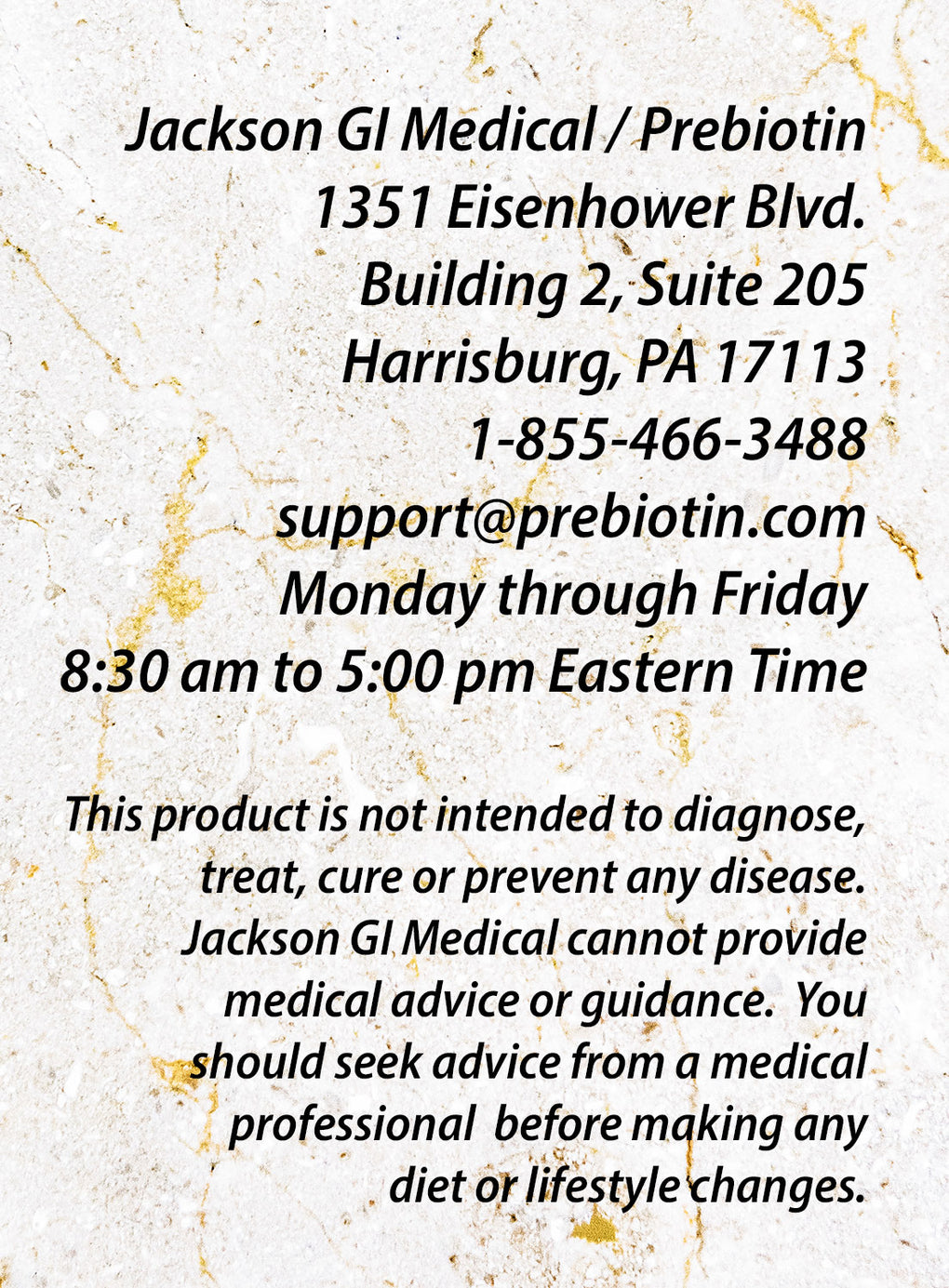How Prebiotin® Prebiotic Fiber Benefits Your Child—At Every Stage of Life

While you are thrilled with your new baby, your joy may quickly turn to worry if your infant is suffering from gassy cries, painful constipation, an uncomfortable extended belly, and other signs of gastrointestinal distress.
With your doctor’s support, an easy solution may be the addition of Prebiotin® Prebiotic Fiber to your baby’s formula. This is especially important if you are not breastfeeding or have delivered with a C-section.
As your child grows, you can be comforted that by supplementing with Prebiotin, you have started your infant on a healthy path to a balanced microbiome (the collection of bacteria living in the gut). This can lead to lifelong health benefits including:
- An improved immune system
- Improved bowel regularity and decreased constipation
- Increased calcium absorption for strong bones
- Better appetite control and less obesity
- Improvements in heart and brain health
Safe for Infants and Children
Studies have shown that Prebiotin is both safe and beneficial for infants and children. Our prebiotic fiber contains only two ingredients,inulin and oligofructose, combined as oligofructose-enriched inulin. This kind of prebiotic fiber occurs naturally in many fruits and vegetables, including chicory root, which humans have consumed for thousands of years.
Prebiotics and Breastfeeding
Research studies show that the microbiota of babies who are breastfed is dominated by a beneficial type of bacteria called bifidobacteria. A vaginal birth is another “plus” for a healthy microbiome. Infants are not only exposed to the limited microbes in the placenta and through the umbilical cord; during a vaginal birth, they are exposed to beneficial bacteria in the birth canal. During birth, fluid with the mother’s bacteria enters your baby’s nose and mouth to colonize the digestive system and your baby’s skin.
On the other hand, babies born through cesarean section have more bacteria associated with hospital environments in their guts.
If babies have been exposed to beneficial bacteria like lactobacilli and bifidobacteria from mom, especially through extended breastfeeding, they have softer, looser stools. They also tend to stay healthier as they grow. Formula-fed infants often have less frequent and more firm stools, with related digestive problems. Digestive distress can cause the infant pain and increase crying.
Another intriguing benefit is that children with a healthier microbiome that includes higher amounts of bifidobacteria may show more happy feelings and delight and less fear. This was confirmed in a 2019 study with 303 infants where researchers found that the infant’s microbiome composition can influence the development of basic behavioral traits.
The Importance of Breast Feeding

Breast milk serves as a prebiotic. It contains human milk oligosaccharides or HMOs that cannot be digested in the small intestine. HMOs are the third most abundant ingredient in breast milk after fat and carbohydrates.
The HMOs travel intact to the colon, where they stimulate the growth and activity of beneficial bacteria, called bifidobacteria that support a healthy immune system. Since the gut is where about 80% of the immune system exists, a baby with a healthy amount of bifidobacteria has a great start on good health for life!
Breastfeeding has such a powerful effect on your baby’s immune system, that it is has been associated with a protective role, not only in infancy, but throughout life. Breastfed newborns are at lower risk for:
- Developing infections
- Diarrhea
- Necrotizing enterocolitis
- Allergies
- Atopic diseases (eczema, asthma, and rhino conjunctivitis)
Studies show that adults who have a history of being breastfed continue to have better bowel and metabolic health.
Breast milk is the best and easiest way to make sure your child receives the necessary nutrition that help beneficial bacterial colonies thrive.
Don’t worry if you can’t breastfeed or had a C-section…
Prebiotin can help your baby
If you are not able to breastfeed or have had a C-section, you can still make sure your child has the right balance of bacteria in their microbiome. Numerous research studies indicate that children who receive a prebiotic like Prebiotin grow healthier bacteria colonies in the gut. The supplement does not impact normal development and growth.
In fact, a 2013 Spanish study concluded that infants who were fed a prebiotics-enriched formula developed a gut makeup similar to infants who had been breastfed.
What is the Right Amount of Prebiotin for Your Child?
We always recommend consulting with your pediatrician or health care provider concerning dietary adjustments, like adding supplements.
Infants: For daily maintenance, Prebiotin can be introduced in small amounts to infant formula and/or baby food. Amounts used in general are very small, depending on the infant's weight. Start with 1/8 to 1/4 gram (1 gram = 1/4 teaspoon).
These amounts are generally increased slowly as the child gains weight. Daily amounts should not exceed 1 gram unless recommended by a physician.
Older Children: The amount of Prebiotin for older children depends on your child's weight. For example, while an average 150-pound adult may take 6 grams of Prebiotin a day, a 50-pound child may build up to 2 grams. All supplement use should be reviewed by your child's pediatrician.
Crowding out the “bad” bacteria
As a complete or “full-spectrum” prebiotic fiber that nurtures the whole colon, Prebiotin is designed to build a healthy balance of bacteria in the colon. The prebiotic fiber nurtures the “good” bacteria that crowd out “bad” bacteria that can lead to digestive concerns and illness.
As a result, infants and children benefit from improved regularity, softer stools, increased stool frequency throughout the day, and fewer digestive upsets.
The Impact of Animals on Your Child's Microbiome

As children grow, they also receive bacteria from relatives and friends through physical contact, like kisses, or through sharing food. You may not be aware that pets and insects can also have a major impact on the microbiome, according to a 2017 NYT article.
The article notes a study that found Amish children who grew up close to barnyard animals had far lower rates of asthma than children raised apart from animals.
Study co-author Jack Gilbert explains: “The Amish suffer from fewer immune-related illnesses than the rest of us because they grow up with their livestock and the bacteria they host, as our human predecessors did for thousands of years.” He directs the Microbiome Center at the University of Chicago.
Even the pets we bring into our homes change the bacterial composition of our microbiomes. One study found dog ownership raised the levels of 56 different classes of bacterial species in the indoor environment. Cats, naturally more fastidious, only brought in 24 additional categories. Preliminary research shows that these bacteria may affect our emotions and other mental functions. Specifically, animal companionship may lift our moods!
Photo credit: Samerbach13@gmail.com
Some parents notice their children get fewer colds and other school transmitted illnesses when they supplement with Prebiotin. What’s going on?
We now know that our gut bacteria play a fundamental role regulating the immune system. With the right balance of bacteria, we are more protected from the impact of bad bacteria and viruses that cause illness.
However, with a poor diet, overuse of antibiotics, and changes in agricultural methods that kill the soil, the microorganisms in the gut are no longer resilient or diverse enough to help the immune system respond effectively.
The results? Children—and adults—have more inflammatory and autoimmune illnesses like juvenile arthritis, lupus, and psoriasis, to name just a few.
Even allergies are linked to the bacteria composition in the microbiome. Researchers have found that if infants eat vegetables, fruit, and food cooked at home, they are less likely to develop allergies. The average American diet, high in refined carbs and low in key nutrients puts children and adults at risk for a wide range of health conditions and diseases.
Yet, there is hope—and a simple solution. Researchers continue to add to the growing body of evidence that a chicory root fiber supplement (like Prebiotin) nourishes beneficial bifidobacteria colonies. These support healthy, regular bowel movements and decrease disease risk.
Scientists studied a group of children, ages 3 to 6, to explore the impact of adding an inulin fiber supplement to their diet. After six months, 219 children completed the study. Those who had received the fiber supplement had definite health improvements:
- A rise in bifidobacteria
- Healthy and regular bowel movements
- Fewer episodes of sinusitis and fevers than the control group
In other words, the prebiotic helped to strengthen the immune systems, resulting in fewer days at home for both children—and their parents.
Managing your child’s constipation
Researchers chose this age group because childhood constipation is among the most common digestive complaints in children. Children are especially vulnerable to having constipation during new stages of development or in new environments (like school). For example:
- After starting formula or processed foods during infancy
- During toilet training in the toddler years
- Soon after starting kindergarten
Common childhood problems include infrequent bowel movements, pain on passing large, hard stools, and diarrhea. About 3% of children worldwide have constipation. Approximately 40% of all children develop symptoms of constipation during the first year of life.
Emergency visits for constipation are on the increase. Between 2006 and 2011, constipation-related visits to emergency rooms across the U.S. rose 41.5%, led by infants and children.
How can I help my child avoid constipation?

The less fiber your children get, the more likely they are to develop constipation in childhood. A good approach is to encourage your child to eat high fiber foods like fruits, leafy vegetables, beans, beans, lentils, and whole wheat bread.
It is also important to encourage your child to drink plain water or milk. Avoid sodas that are loaded with sugar.
According to the Cleveland Clinic, a 12-oz serving of soda contains about 36 grams (approximately four teaspoons) of sugar and about 160 calories.
Even fruit drinks with claims of vitamin C are sugar water.
If you are buying 100 percent fruit juice, limit your child to no more than 4-6 ounces each day to maintain a healthy weight. Even “natural” sugar can add a lot of calories quickly, say the experts at the Cleveland Clinic.
Photo Credit: Samersbach13@gmail.com
Despite the parents’ best efforts, children will often reject healthier choices or choose sweet snacks or processed foods when parents are not around.
If this is your child (and you’re not alone!), Prebiotin can fill the gap. To make sure your child is getting the right amount of fiber for regularity and general good health, a healthy diet that includes Prebiotin® Prebiotic Fiber may be your answer.
Weight control with prebiotic fiber
Researchers have demonstrated that a diet that includes a prebiotic fiber like Prebiotin can reduce the impact of another common childhood concern, obesity.
Since the 1980s, childhood obesity rates have tripled. According to the CDC, 18.5% children (or 13.7 million) are now obese, and one-third of all children overweight. Children who are overweight and obese are at greater risk for diseases like type 2 diabetes, cancer, and heart disease.
Prebiotin® Prebiotic Fiber has been used in numerous research studies with adults as well as children and infants. These studies show that regular supplementation with an inulin type of prebiotic fiber like Prebiotin helps children control their appetites and feel fuller. They are also able to maintain a healthy weight more easily.
A simple change
In a 2017 Canadian study, researchers gave 42 children between the ages of 7-12 either prebiotic fiber (oligofructose-enriched inulin) or a placebo once a day for 16 weeks. The children were obese or overweight, but were otherwise healthy.

“Powdered fiber, mixed in a water bottle, taken once a day is all we asked the children to change, and we got, what we consider, some pretty exciting results—it has been fantastic." Raylene A. Reimer, PhD, RD, professor and study leader, Faculty of Kinesiology at University of Calgary, in Science Daily.
Based on the results from 16 weeks, the scientists estimated that children who had taken the prebiotic would gain about 6.6 pounds per year, which is in the healthy range. In the placebo group, they estimate a weight gain of 17.6 pounds, triple the healthy weight increase in a growing child.
The study showed that the prebiotic improved the mix of bacteria, helped children maintain a healthy weight, and reduced the percent of body fat. Not bad for a single change—powdered fiber mixed in a simple water bottle.
Help for Your Child with Autism Spectrum Disorder or ASD
If you have a child with autism, you may face the heartbreaking symptoms of difficult communication, poor social engagement, and repetitive behaviors. It is even more challenging that many children with this devastating illness face a variety of gastrointestinal concerns. Symptoms like stomach pain, cramping, diarrhea, and constipation can lead to poor diet and sleep. This can result in more problems with behavior, mood, and weight gain.
Researchers have found that there is a profound difference in the gut microbiome of children with autism, compared to children without the condition who also have GI symptoms. Other studies confirm that improving gut health is linked to less stomach distress and improvements in behavior.
Autism: The Dangers of Living in a Chemical Soup
We live in a chemical soup—from our non-stick cooking pans to killing our garden weeds with Roundup. As our daily exposure increases, researchers are demonstrating a link between the toxic chemicals we breathe, drink, and eat every day to an increase in poor health and disease. Conditions like attention deficit hyperactivity disorder (ADHD), childhood cancers, diabetes and obesity, and autism are all on the rise.
The increase in autism is especially compelling. According to CDC statistics, in 2000, about one in 150 children were diagnosed with the condition. In 2014, the number jumped to one in 59.
Scientists have demonstrated for years that chemical exposure changes the microbiome—and makes us more vulnerable to disease. For example, glyphosate (the chemical found in Roundup) has been shown to reduce beneficial bacteria in the gut, while boosting the growth of clostridium bacteria.
Studies show that as clostridium increases in the digestive tract, the possibility of developing autism and related symptoms may increase.
The benefits of adding Prebiotin to your child’s diet
Chicory-based prebiotics like Prebiotin have shown to improve the bacterial balance, where beneficial bacteria crowd out toxic bacteria like clostridium. Therefore, it may be beneficial for your child’s diet to include a daily dose of Prebiotin.
Researchers who gave autistic children prebiotics found that autistic children had lower scores of abdominal pain and improved bowel movement. Some symptoms of anti-social behavior also decreased. These findings support the numerous studies that link gut microbiota and brain function.
In a study with mice, researchers noted that a missing species of gut bacteria caused social deficits in mice similar to those with autism in humans. By replacing this species in the mouse gut, some of these social deficits were reversed.
Costa-Mattioli, one of the authors, explains: “This is where the science is unexpectedly leading us. We could potentially see this type of approach developing quite quickly not only for the treatment of ASD but also for other neurodevelopmental disorders.”
Children and antibiotics

Numerous studies have shown that using antibiotics can change the balance of the microbiome. These drugs not only attack undesirable bacteria but also eliminate beneficial microbes that reduce disease risk. Supplementing with a prebiotic like Prebiotin can blunt the negative impact of frequent antibiotic use, especially in childhood.
In one study, researchers found that prebiotics in a milk formula can help to increase the good bacteria after antibiotic treatment. The children showed no stomach distress. About 300 children in another study also showed higher counts of beneficial bacteria like bifidobacterium and lactobacillus in the stool after they received a daily dose of 6 grams of chicory-root based prebiotic fiber. These children had fewer fevers requiring medical attention.
Photo Credit: Samersbach13@gmail.com
Building a strong foundation for lifelong better health
From infants to teenagers, children of all ages can benefit from supplementing with all natural Prebiotin® Prebiotic Fiber:
- Infants, especially those who are bottle-fed, are able to establish a healthier mix of bacteria in the gut. They may benefit from improved lifelong immunity and decreased disease risk, even into adulthood.
- Young children benefit as they face new stressors and environmental changes that can result in constipation and digestive upsets.
- As children become teenagers, they too benefit from supplementing with a prebiotic fiber. This simple addition to a daily diet can offset the impact of junk food, poor sleep, and alcohol.
These lifestyle choices can weaken the microbiome and lead to weight gain, depression, and poor concentration.
Make Prebiotin® Prebiotic Fiber the go-to solution for your infant with colic, your fourth grader with a chronic stomach ache due to stress, or your teenager who is obsessed with staying Facebook slim. Children of all ages—and their parents—benefit from a prebiotic fiber that gives the desirable bacteria in your body the nutrition necessary to flourish and fight disease for lifelong better health!
Photo Credit: Samersbach13@gmail.com
(All of our blogs are carefully researched, contributed to, and reviewed by our senior management and support team.)
A Sample of Scientific Research
- American Gastroenterological Association. Prebiotics reduce body fat in overweight children. ScienceDaily. Press releases. 7 June 2017. Accessed November 29, 2918.
- Argou-Cardozo I, Zeidán-Chuliá F. Clostridium Bacteria and Autism Spectrum Conditions: A Systematic Review and Hypothetical Contribution of Environmental Glyphosate Levels. Sci. 2018, 6(2): 29.
- Barberán A, Dunn RR, Reich BJ, Pacifici K, Laber EB, Menninger HL, et al. The ecology of microscopic life in household dust. The Royal Society Publishing. Published 26 August 2015.DOI: 10.1098/rspb.2015.1139.
- Belkaid Y, Hand TW. Role of the microbiota in immunity and inflammation. Cell. 2014 Mar 27;157(1):121-41. doi: 10.1016/j.cell.2014.03.011.
- Buffington SA, Prisco, GV, Auchtun TA, Ajami NJ, Petrosino JF, Costa-Mattioli, et al. Microbial Reconstitution Reverses Maternal Diet-Induced Social and Synaptic Deficits in Offspring. Cell; 165(7);1762-1775. .
- Childhood Obesity Causes & Consequences. Last reviewed: Dec. 15, 2016. Accessed November 21, 2018.
- Data & Statistics on Autism Spectrum Disorder. Last reviewed: September 3, 2019. Accessed Dec. 9, 2019.
- Prevalence of Childhood Obesity. Childhood Obesity Facts. Last reviewed: August 13, 2018. Accessed November 19, 2018.
- Children’s Health Team. 7 Best and Worst Drinks to Keep Kids Hydrated. Health Essentials, Cleveland Clinic. Published April 19, 2016. Accessed November 21, 2018.
- Closa-Monasterolo, R et al. The use of inulin-type fructans improves stool consistency in constipated children. A pilot study. International Journal of Food Sciences and Nutrition. 2017; 68(5).
- Constipation in Children. Mayo Clinic. Published August 12, 2018. Accessed November 25, 2018
- Fattprisso A,. Di Genova L, Dell’Isola GB, et al. Autism Spectrum Disorders and the Gut Microbiota. 2019 Feb 28;11(3). doi: 10.3390/nu11030521.
- Firmansyah A, Chongviriyaphan N, Dillon DH, et al. Fructans in the first 1000 days of life and beyond, and for pregnancy. Asia Pacific Journal of Clinical Nutrition. 2016 Dec 1;25(4):652-75.Accessed November 12, 2018
- Gardner R. Chicory inulin given to kindergarten children results in improved digestive health, fewer infections. Nutritional Outlook. Jul 26, 2018. . Accessed November 20, 2018.
- Grimaldi R, Gibson GR, Vulevic J, et al. A prebiotic intervention study in children with autism spectrum disorders (ASDs). Microbiome. 2018 Aug 2;6(1):133. doi: 10.1186/s40168-018-0523-3.
- Haridy, Rich. Emotional temperament in babies associated with specific gut bacteria species. New Atlas. June 19, 2019.
- Infants, Prebiotics, and Digestive Health. Dietary Fiber. Accessed November 24, 2018.
- Li, William W. What to Feed Kids for Better Gut Health.S. News and World Report. Sept. 5, 2019. Accessed Dec. 9, 2019.
- Lohner S, Jakobik V, Mihályi K, et al. Inulin-Type Fructan Supplementation of 3- to 6-Year-Old Children Is Associated with Higher Fecal Bifidobacterium Concentrations and Fewer Febrile Episodes Requiring Medical Attention. J Nutr. 2018 Aug 1;148(8):1300-1308. doi: 10.1093/jn/nxy120.
- McElhanon BO, McCracken C, Karpen S, Sharp WG. Gastrointestinal Symptoms in Autism Spectrum Disorder: A Meta-analysis. 20. Pediatrics. 14 May;133(5):872-83. doi: 10.1542/peds.2013-3995.
- Miller, Molly. Toxic Exposure: Chemicals Are in Our Water, Food, Air and Furniture. Are the Chemicals We Encounter Every Day Making Us Sick? University of California San Francisco R June 22, 2017.
- Montague, Brendan. RoundUp – understanding the risks. Ecologist The Journal for the Post-Industrial Age. June 3, 2019.
- Nicolucci AC, Hume M, Martinez I, et al. Prebiotics Reduce Body Fat and Alter Intestinal Microbiota in Children Who Are Overweight or With Obesity. Gastroenterology. 2017 September; 153(3):711-722. DOI: .
- Pelzer E, Gomez-Arango LF, Barrett HL, et al. Review: Maternal health and the placental microbiome. Placenta. 2017 June;54:30-37.
- Rajindraijth S, Devanarayana NM, Crispus Perera BJ, Benninga MA. Childhood constipation as an emerging public health problem. World J Gastroenterol. 2016 Aug 14; 22(30):6864–6875. doi: 10.3748/wjg.v22.i30.6864.
- Robertson, Sally. Can you Treat a Food Allergy by Altering the Gut Microbiome? News Medical Life Sciences. Dec 4, 2019. Accessed Dec. 9, 2019.
- Sakanaka M, Hansen ME, Gotoh A, et al. Evolutionary adaptation in fucosyllactose uptake systems supports bifidobacteria-infant symbiosis. Science Advances. 28 Aug 2019;5(8):eaaw7696. doi: 10.1126/sciadv.aaw7696.
- Schiffman R. Are Pets the New Probiotic? New York Times. June 6 2017. Accessed November 19, 2018.
- Shannon R, Bennuri SC, Murray KF, et al. Mitochondrial dysfunction in the gastrointestinal mucosa of children with autism: A blinded case-control study. PLoS One. 2017 Oct 13;12(10):e0186377. doi: 10.1371/journal.pone.0186377. eCollection 2017.
- The Importance of Breastfeeding. The Surgeon General’s Call to Action to Support Breastfeeding. Accessed November 10, 2018.
- Vaginal Delivery, Breastfeeding, and Your Baby’s Microbiome. Fairhaven Health. . Accessed November 15, 2018.
- Wellcome Trust Sanger Institute. Babies’ gut bacteria affected by delivery method; Vaginal delivery promotes mother’s gut bacteria in babies’ gut. Science Daily. Press Release. September 18, 2019. Accessed Dec. 9, 2019.






